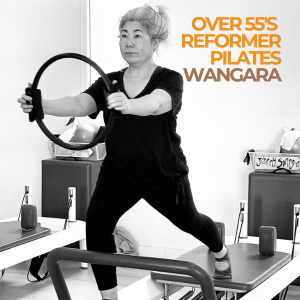As we get older, our priorities start to shift, and in particular, most of us start to think about what we can do to improve our health.
For many seniors, this includes doing regular exercise, quitting smoking, drinking less alcohol, and watching what they eat. The latter of which is particularly important, because what we eat plays a massive role in how we age.
Not only does it affect our weight and energy levels, but it also affects our general level of wellness. That’s why an increasing number of elderly Aussies are committing to following a plant-based diet, if not permanently, then at least a couple of days a week.
But what exactly is a plant-based diet, and why is it so good for those in their golden years?
This post will answer those questions to help you decide if this is the kind of lifestyle transformation you are willing to make.
What is a Plant-Based Diet?
A plant-based diet is one that focuses on eating mostly or entirely foods that come from plants. This includes fruits, vegetables, legumes, wholegrains, nuts, seeds, and plant-based oils.
Unlike vegetarian or vegan diets, it doesn’t have to be completely free of animal products. But the emphasis is very much on minimising the consumption of meat, dairy, and processed foods.
For many seniors, plant-based diets provide them with nutrient-dense, easy-to-digest meals that are better for their long-term health. Indeed, they have become so popular in Australia, not just among seniors, that meal delivery services like Soulara have built successful businesses around them.
They deliver chef-prepared, plant-based meals straight to your door, which takes the stress out of cooking.
Benefits of a Plant-Based Diet
Several bodies of research have suggested that plant-based diets can be beneficial to your health. Here are some of the main ways they can be advantageous to Aussie seniors.
- Supports Heart Health
Heart disease is one of the leading causes of death in older Australians, and your risk of it is linked to what you eat.
The good news is that plant-based foods, particularly fruits, veggies, legumes, nuts, and wholegrains, have been shown to lower the risk of cardiovascular disease by improving cholesterol levels and reducing inflammation.
Subsequently, the more of these types of foods you consume, the more likely you are to reduce your blood pressure and improve circulation.
- Aids in Healthy Weight Management
Carrying extra weight as we age puts strain on our joints, heart, and overall mobility, which can result in a greater risk of injury or ill health.
Many seniors find they can lose excess kilos or maintain a healthier weight without strict dieting just by choosing more plant-forward meals.
Prolonged fibre-rich, low-calorie eating can lead to improved energy levels and a reduced risk of weight-related conditions like type 2 diabetes and osteoarthritis.
- Reduces Risk of Chronic Illnesses
One of the biggest wins of a plant-based lifestyle is the reduced risk of chronic disease. Research links plant-based eating to a lower likelihood of developing illnesses such as diabetes, high blood pressure, and even some cancers.
By swapping processed meats for wholesome grains, legumes, and vegetables, you’re loading your body with nutrients that fight disease at a cellular level.
That’s a smart move at any age, but especially so for those over retirement age.
- Enjoy Better Digestive Health
Sadly, gut issues like bloating and constipation can become more common as we age. That’s why many people are turning to a plant-based diet that is full of fibre to keep their digestive system running smoothly.
Fibre-rich foods like oats, leafy greens and lentils are known to help regulate bowel movements, support a balanced microbiome, and may even lower the risk of colon cancer.
Additionally, drinking plenty of water alongside them also helps everything to “flow” better.
- Improves Energy and Mood
It’s not uncommon to feel sluggish or low in energy as we get older because, naturally, we are not as active as we once were. However, switching to a plant-based diet can leave you feeling more energised and alert.
Whole plant foods are rich in complex carbohydrates and essential nutrients like magnesium and iron, which help with stamina and mental clarity. If you eat them instead of heavy, greasy foods, it can go a long way towards reducing that post-meal fatigue feeling many of us know too well.
- Enhances Immune Function
Our immune system naturally weakens with age, but a plant-based diet can give it the boost it needs. As it’s big on colourful veggies, fruits, herbs, and spices that all contain antioxidants, the more of these types of food you consume, the more it helps your body fight off infections and inflammation.
Overall, maintaining a varied intake of vitamin C, zinc, and phytonutrients from plant foods will support your immune resilience, which is particularly important during flu season.
To reduce the cost of buying a variety of vegetables, why not join a local veggie co-op?
- Helps Maintain Bone Health
You don’t need dairy to keep your bones strong. In fact, leafy greens like kale, broccoli, and bok choy are great sources of calcium and vitamin K, both vital for bone density.
A plant-based diet that includes fortified non-dairy milks, tofu, and legumes can provide all the nutrients needed to keep bones strong and reduce the risk of falls and fractures, a common concern for older adults.
















